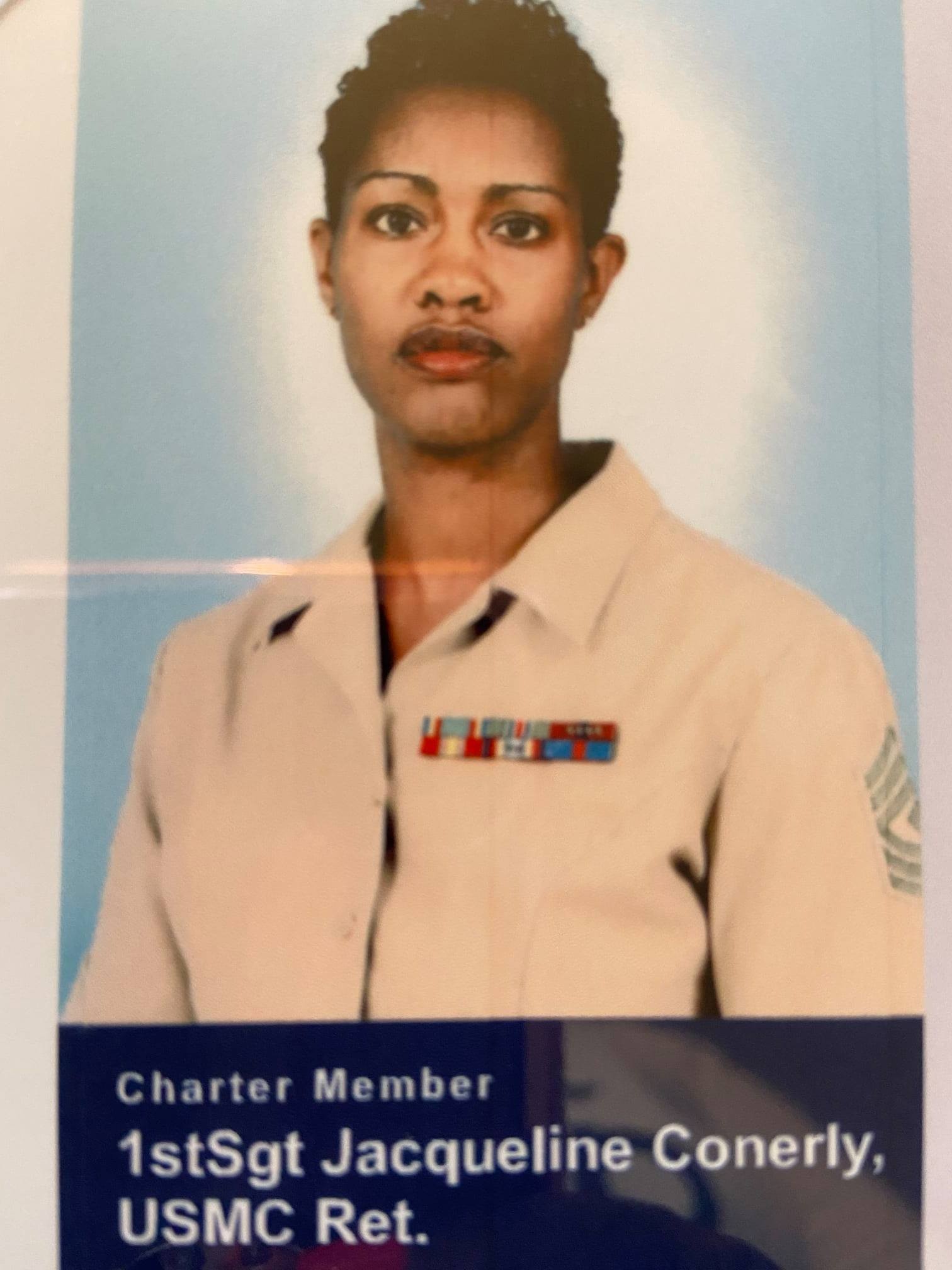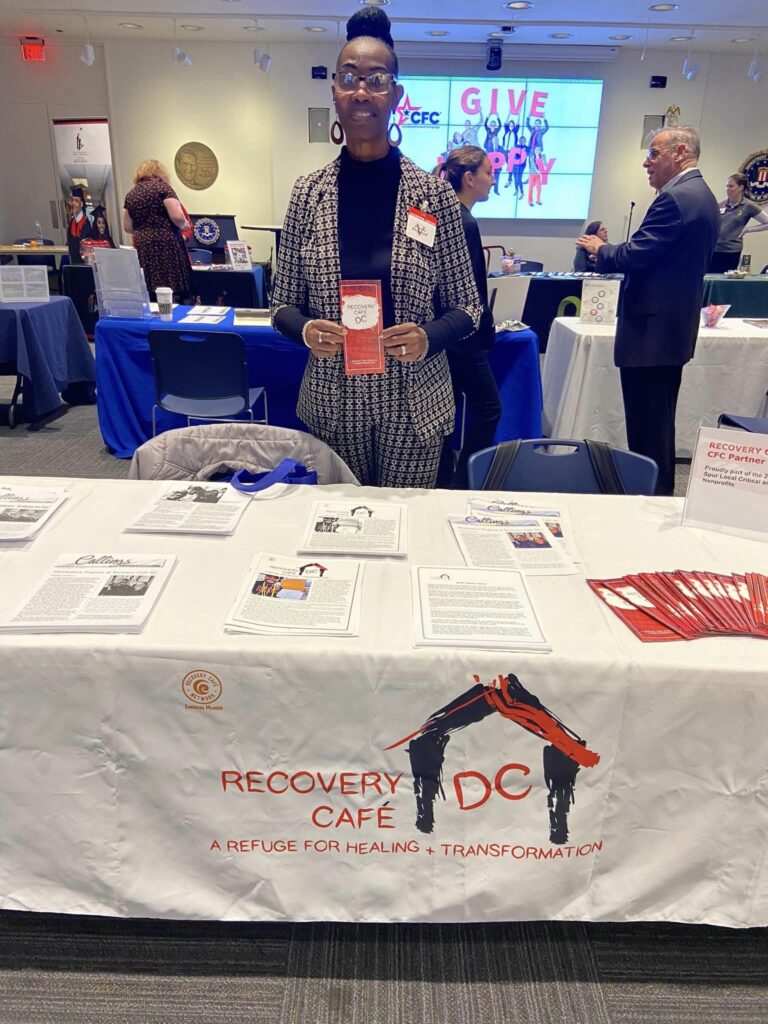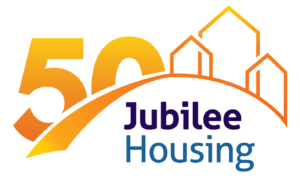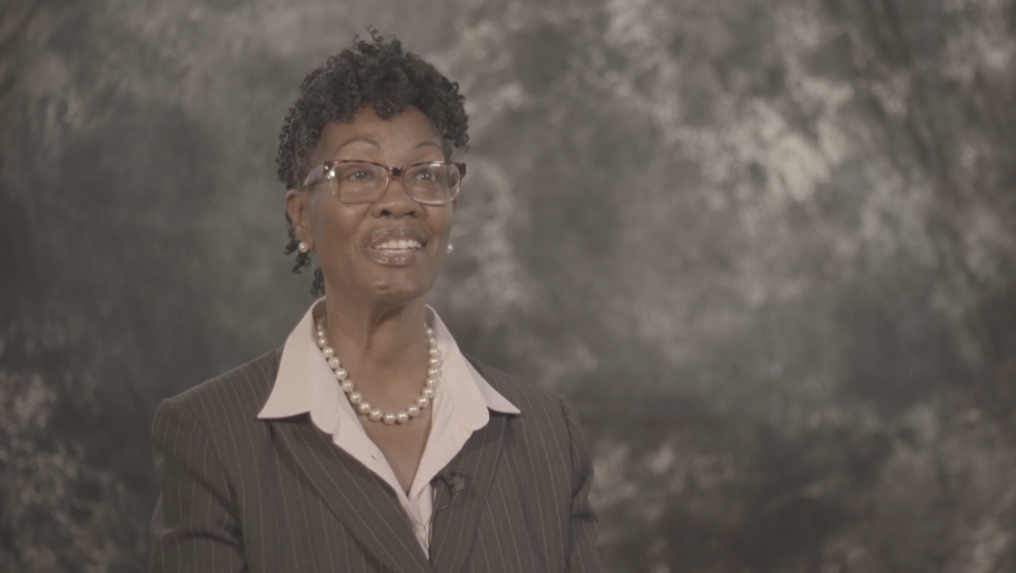For 50 years, Jubilee Housing has both fostered and benefited from the gifts of many exceptional leaders. This March, we are celebrating Women’s History Month at the same time we are celebrating five decades of mission. Many women leaders have shaped and fueled Jubilee’s work, and we are honored to share stories of three of those leaders this month — Carolyn Banker Cresswell, Patricia Sitar, and Jacqueline Conerly — with more stories to come in the year ahead.
50th Anniversary Stories
Jacqueline Conerly: Transforming a Community One Life at a Time
by Michael Woods
Meet Jacqueline Conerly, a remarkable leader who is transforming the Ward 8 community in Southeast, DC. She is the Founder and CEO of Recovery Cafe DC and the former deputy director of Jubilee Jobs, which was started by Terry Flood, co-founder of Jubilee Housing. Through compassion and devotion, she has created a community that supports individuals who have battled addiction, homelessness, and incarceration and offers them a path toward deep healing and recovery, carrying forward the values she learned as a member of the Church of the Savior and Jubilee Jobs.
Jacqueline is an inspiration for how kindness and compassion transform a community.
Tell me about yourself and when Jubilee came into your life.
I graduated from high school at 16, and instead of going to college, I just wanted to travel and have some adventure. At 17, with my mom’s permission, I joined the United States Marine Corps. And I can definitely say that was the best move I made in my life.

I retired after 20 years of service in 1998 and then worked for the State Department for five years. It was during that time I had a conversation with Reverend Gordon Cosby, who was the pastor of the Church of the Savior. We were having a conversation in the Potter’s House. That conversation would change the trajectory of my life. It was during that conversation I was asked to join the Jubilee Jobs staff and serve as the deputy director alongside its founder, Terry Flood. During the 17 years that I was there, I oversaw the day-to-day operations of the Jubilee Jobs Southeast office. I was also a volunteer chaplain at the DC jail and Correctional Treatment Facility. I created these returning resident support groups with the men and women who were within 90 days of being released from the jail to connect them with the wraparound services they would need once they came home and that included employment with Jubilee Jobs.
You are now the Founder and CEO of Recovery Cafe DC; can you tell me more about this? What inspired you to create this community?
The reason that we started Recovery Cafe DC is because Ward 8 over here in Southeast, it’s the community where I was born. It’s also where my husband, Donald, was released from incarceration. For decades, our community has been plagued with substance abuse, trauma, homelessness, and incarceration. All of that combined with Donald’s own history of his challenges with those things, we knew that it was really important to have a healing community, a transformative healing community that supported recovery.
Recovery Cafe DC’s model is that we’re a community of long-term healing and recovery that addresses homelessness, isolation, addiction, and other mental health challenges, like trauma and reentry. The main piece is that we recognize that connection is central to well-being, beyond treatment, that helps to prevent relapse. For us, we feel like it’s a God-given assignment.
When I was at Jubilee Jobs, I said that if I sat across the table from an applicant who was there looking for a job and whether they had been homeless, on food stamps, or whatever the case, I really was looking at me. I just happened to be on the other side of the table because I had support from the Church of the Saviour community that came along and helped my life to be better.
It’s kind of the same thing with Recovery Cafe DC and what we do.

Who or what has been your biggest inspiration in wanting to help the community?
Honestly, my biggest inspiration in life has always been my mother, Ernestine Murphy.
Even with a disability, I watched her interact in our community with such kindness and compassion despite the difficulties and challenges that she was facing, trying to raise six kids and trying to figure out how to make ends meet. And we never really had much, but she was always willing to share with the community, with the neighbors, you know, what we did have.
It’s her life example that’s kind of sowed the seed into me, into my heart, about serving community.
What do you hope your legacy will be within the community?
You know what? It’s really simple. First off, that our passion and our fuel come from our faith. And next, that we’re simply a place for everyone to be known and loved and a place where everyone’s gifts are valued and needed.
I don’t care how many times you’ve been to jail, how many times you’ve relapsed, how many times, whatever. This is a place where everyone is known and you’re known because you can be totally transparent, because we all got areas of brokenness in our life that’s in need of some deep healing. That’s the common thread among us. It’s a place everybody’s known and loved, and everybody’s gifts are valued, and everybody’s gifts are needed. So, we’re going to walk alongside each other and make sure that we’re able to sustain long-term recovery.
Looking back at everything you have done, is this what you envisioned your impact, your mark, to be?
Can’t say for sure what I envision my mark would be on the community, but what I can say is I’ve always known that I felt this inherent pull or this calling to help those who lived on the edge, to help those that society looked at as less than. Because that’s how I grew up.
I wanted to believe that my life counted and one day I would do something to change my world. But I needed a committee of support to help me discover that. And so, I want to be that for others in my community. I want to help people discover their gifts and I want to help people discover their values and how amazing they are.
What is one piece of advice you would give to someone aspiring to create a positive legacy in their community?
I would say first discover your purpose, find your passion, and then find a need in a community that aligns with that.
And then one life at a time, we change the community.
We transform it.

